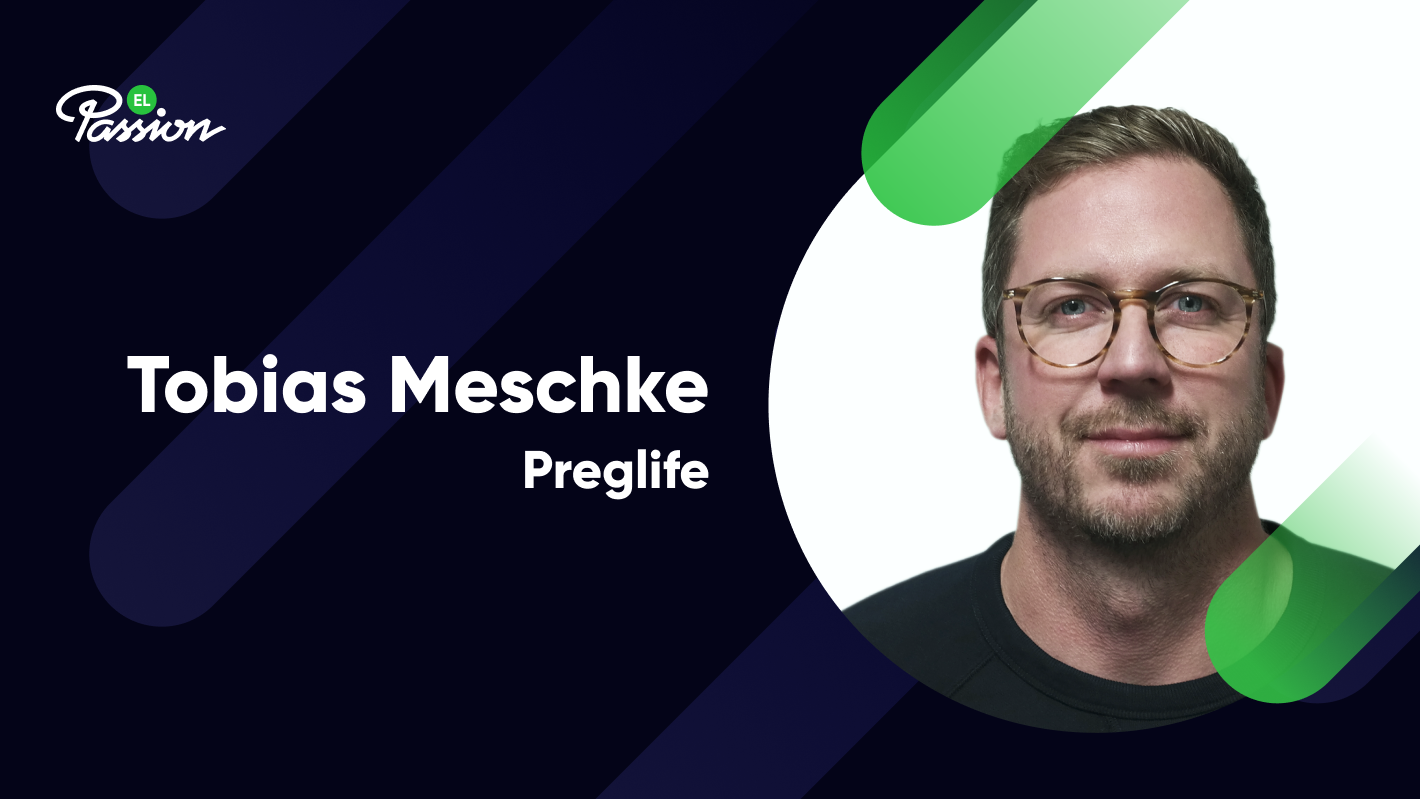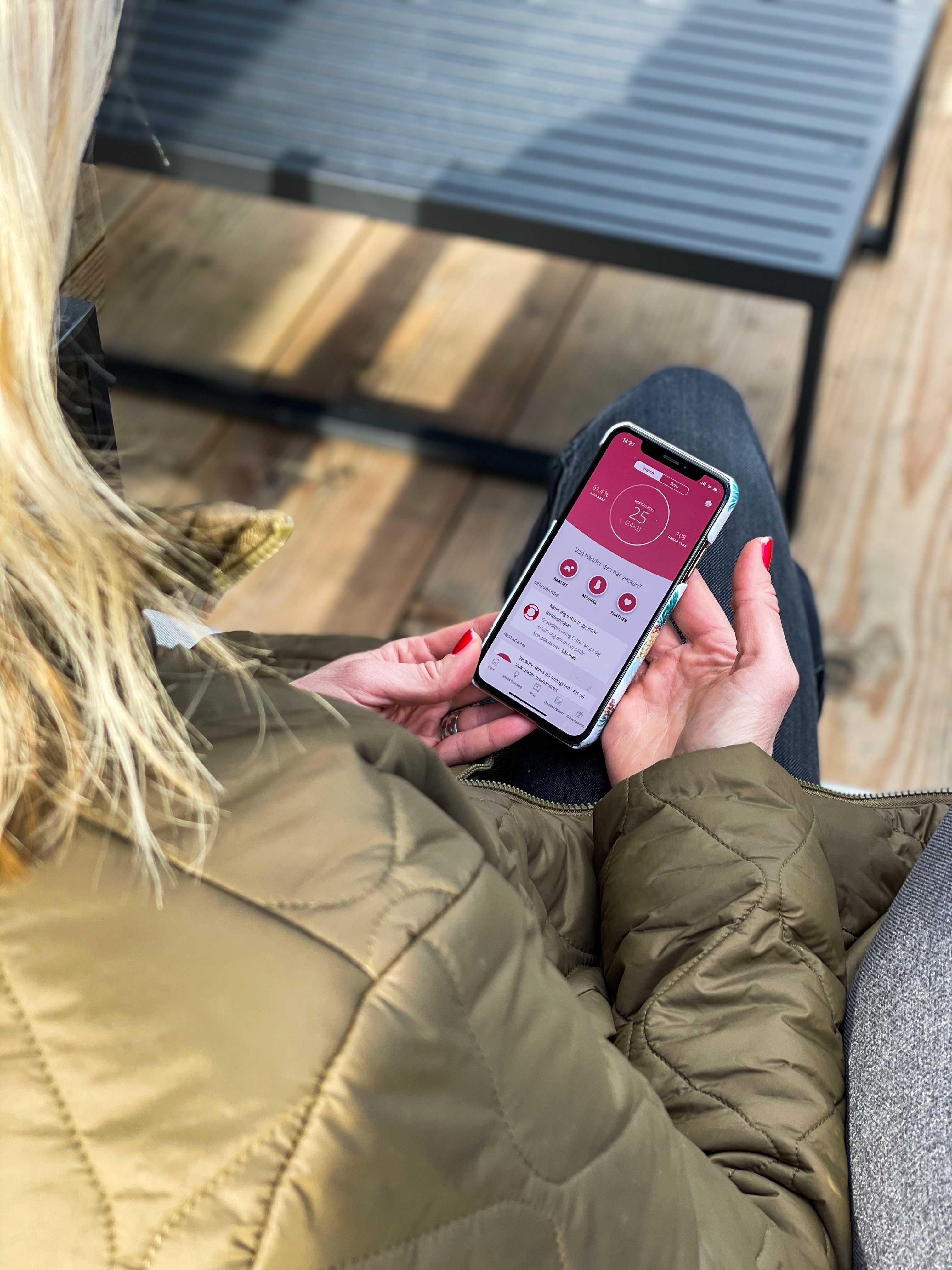30 April 2021 (updated: 12 May 2021)
HealthTech and FemTech Joining Forces — Interview with Preglife
Chapters

We sat down with the CEO of Preglife to talk about empowering women during pregnancy, and the future of prenatal care with digital health in the background.
About Preglife

Preglife is a Stockholm-based company, delivering a HealthTech mobile application for pregnant women and young mothers and their partners.

Tobias Meschke is the CEO fo Preglife. He's a serial entrepreneur with a passion for products and services that makes people's lives easier. Tobias loves turning something that is complex and boring into something fun and accessible. He also have passion for business and I take great pride in finding long lasting partnerships where all parts feel like a winner.
This time, we talked with Tobias Meschke, CEO of Preglife, to discuss HealthTech, FemTech, developing an app during the pandemics, and much more. Let's dive in!
HealthTech and FemTech Joining Forces — Interview with Preglife
The pandemic has changed everyone's lives in one way or another. Pregnant women and small children were affected, too, as hospitalization and doctor's appointments became hazardous.
Tomasz Szymoński: Could you tell us more about Preglife: its origin story and features? What’s your mission?
Tobias Meschke: Before I founded Preglife, I was one of the co-founders of Babygruppen. Babygruppen is one of Sweden’s leading course distributors when it comes to courses for pregnant women and new parents.
When working with Babygruppen, I realized that pregnant women and their partners have a huge need and desire for trustworthy and unbiased information.
I also realized that trust for this target group comes from midwives and other healthcare professionals.
Realizing that and having access to a huge network of midwives, doctors, and other specialists, I came to the conclusion that I can probably create an app that will fulfill this desire for empowerment by knowledge and information.
So that is what I did.
I set up a team of midwives together with a maturity clinic called MamaMia. MamaMia and Babygruppen collaborated at that time. Together with this team of midwives, we created content for the 40 pregnancy weeks focusing on the mother, baby, and partner. We launched the first version of the app in October 2010. That is how it all started.
Now we are the leading pregnancy and baby app in northern Europe. The app now serves content from pregnancy until the child is two years old. We have localized content for ten markets, and we have just over 700 000 MAU. We aim to reach one million before the end of this year.
Our mission, or rather our purpose, is to “empower families to give children a brighter future.” What do we mean by that? We have realized that we can make an impact. Not only on our users but society as a whole. When we successfully empower women and their partners during pregnancy and the toddler years by providing knowledge, we give our users self-esteem. We give our users the power of choice. We help our users connect with their babies and with their partners. When we are successful in this, we help create strong families who then will have the possibility to foster children brought up with love and respect. These children will grow up and become productive parts of their society. That is our mission. This is our purpose.
 Preglife app in action
Preglife app in action
Tomasz Szymoński: How does the Swedish healthcare system help pregnant women? Has the pandemic affected prenatal care?
Tobias Meschke: The Swedish healthcare system is one of the best in the world. When looking at different healthcare systems, the thing that stands out is the midwives. Countries with a midwife's centric healthcare system tend to give better care than those who are doctor-centric.
I believe the healthcare system has done a great job. The system has been working flawlessly during the entire pandemic. However, the experience for those giving birth has been affected negatively due to less hospital time and restrictions on who can join the birth. The aftercare may have suffered as well, but I think it is too early to say. But I would not be surprised if untreated birth-related complications will have increased during the pandemic due to the decreased aftercare at the hospital and the early releases. However, untreated birth-related complications were a problem even before COVID-19. So to be part of the solution, we are focusing a lot on post-partum empowerment. We will soon release a brand new section in the app called "trimester 4," where we will spotlight these problems.
Tomasz Szymoński: Did you learn something when developing the app that you didn’t think of before when clashing your vision with your actual target group?
Tobias Meschke: I have learned so much. Keep in mind that we launched the app in 2010. At that time, I didn’t have any children of my own. Now I am married, and I have two kids, one boy, and one girl. So I have gone through the whole experience as a user and as an entrepreneur learning so much.
However, the most significant insight that I got that we still live by today was during my time with Babygruppen. It was then that I realized how important it is to have the right source of information. I learned that midwives are the most trusted source of information and inspiration. Hence all information in Preglife comes from the midwives or other specialists working within the healthcare industry. That was true when we first launched Preglife, and it is still true today.
Tomasz Szymoński: How was Preglife affected by COVID-19, if that’s the case?
Tobias Meschke: We are, of course, affected like everyone else. Life suddenly became very different. We work from home. We don’t see each other face to face that often anymore. Some colleagues I have never even met. However, we are lucky in a sense. We were a digital company even before the pandemics, now even more so. So it was not hard for us to go 100% digital. Now looking back, I think we have coped with the situation very well. But at the same time, I am more eager than ever to put this behind us and go back to the new normal.
Tomasz Szymoński: Are you not afraid that women might schedule their appointments with physicians less frequently because of the app? That women might think that the application is all they need?
Tobias Meschke: No, that is not something I am afraid of. We are here to support and empower our users, but we are not a competitor to traditional maternity care — we should be seen as a compliment. However, I sometimes hear users who felt like the app was their best support and that the traditional care failed them, so we are an equally important player in the healthcare space.
Tomasz Szymoński: Could you tell us more about your take on the shift toward digitization and in-home care?
I think the next big step will be monitoring and tracking. Digital care up until today has, in my view, been focused on reactive care. Someone feels ill and has a digital meeting with a doctor or nurse. That is great, but the next big breakthrough, I think, will be proactive care by monitoring. IoT devices or data will let the user know when she needs care. Much before she can feel that something is wrong. This is also where I see that Preglife can fit in the digi-physical health care space.
Tomasz Szymoński: Are there any lessons you would like to share about managing a Healthtech company in 2020? And what challenges may you face in 2021?
Tobias Meschke: I am an entrepreneur; I rarely see any challenges at all — just opportunities. I think the healthcare space is more attractive now than ever. Things are moving fast. But one piece of advice that I like to share is to have a full focus on your users'/customers’ integrity.
There is no room for sloppy data handling or grayscale business models in this space where you monetize data in a non-user-centric way. Be true and honest with your users - that is the only way to stay relevant.
Tomasz Szymoński: What is the future of HealthTech and FemTech, in your opinion?
Tobias Meschke: I think it is a summary of all my answers. I believe this industry will only get bigger and take up a more significant piece of our users’ lives. With 5G rolling out, I firmly believe that monitoring will be the focus for the coming years. Data and integrity will become even more critical. I believe the iOS 14 changes are just the beginning. Soon, everyone will realize that to stay relevant, you need to be user-centric and have high integrity. You can’t keep stalking your users over the entire Internet just because they landed on your website or searched for you on Google.
Intrested in HealthTech Trends, check out our four predictions of digital health trends. And if you want to learn more about the importance of digital health adoption, we also recommend our interview with Cameron Carter of Bright Health.





